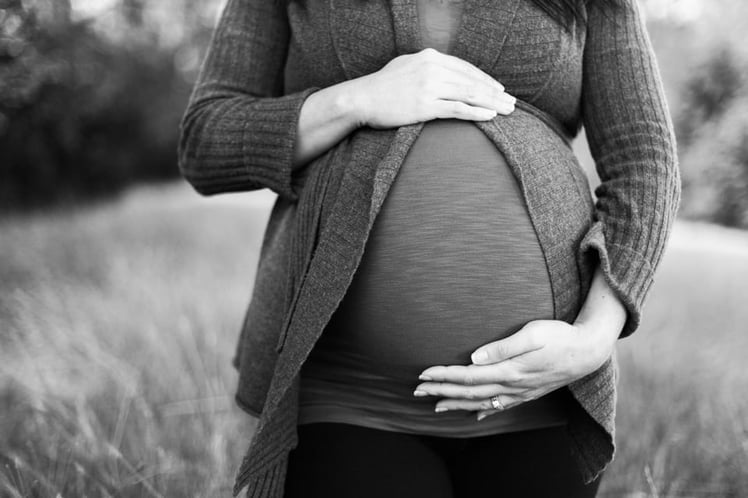
The New Jersey Supreme Court recently decided its first case[1] related to the New Jersey Pregnant Workers Fairness Act (PWFA),[2] a 2014 amendment to the New Jersey Law Against Discrimination (NJLAD). The PWFA amended existing portions of the NJLAD to specifically include “pregnancy or breastfeeding” as a protected classification entitled to the act’s prohibitions and protections. The PWFA also added a new section that explained an employer’s obligations and created a new cause of action for “unlawful penalization” when an employer makes the conditions of an accommodation unreasonably harsh. The NJ legislature made these legislative changes to protect pregnant and breastfeeding women from discrimination by requiring that employers make reasonable accommodations that allow them to continue working.[3]
Facts of the Case
Police officer Kathleen Delanoy brought a pregnancy discrimination claim against her employer. She claimed that the standing operating procedures (SOPs) issued by the then-chief of police violated the NJLAD on its face. She also alleged that the township’s treatment of her constituted an impermissible penalization.
Officer Delanoy’s department had two different SOPs for light-duty work, one specifically for pregnant officers and one for non-pregnant injured officers. Under the maternity SOP, the projected return date had to be “no more than 45 calendar days past the expected due date,” while the light duty SOP allowed an officer’s doctor to determine when it was medically advisable for the officer to return to work. While both SOPs required on their face that an officer exhaust their accumulated paid leave time, the regulations gave the police chief the discretion to waive this requirement for officers using the injury SOP (but not for those using the maternity SOP).
When Officer Delanoy informed the department that her pregnancy prevented her from carrying a gun or defending herself on patrol, she was assigned to handle records and
work as a “walk-in” officer, responsible for fielding public complaints. She perceived this assignment as punitive and retaliatory in response to her request for accommodation.
Legal Claims and Court Decision
In its decision, the NJ Supreme Court affirmed that the NJLAD, including the PWFA, creates three distinct statutory causes of action:
- Unequal or unfavorable treatment of a pregnant or breastfeeding employee;
- Failure to provide a reasonable accommodation to a pregnant or breastfeeding employee (subject to an employer’s defense of undue hardship); and
- Illegal penalization of a pregnant or breastfeeding employee for requesting an accommodation.[1]
Unequal and Unfavorable Treatment
The New Jersey Supreme Court found the maternity SOP was invalid on its face under the NJLAD because it treated pregnant employees unequally and less favorably than non-pregnant employees who are similar in their ability or inability to work. It ruled in favor of the plaintiff on that count and directed the case back to a jury to determine appropriate damages. In light of the court’s holding, pregnant employees who are subject to SOPs and policies that are unequal or unfavorable should consult with an attorney.
Right to Accommodation
The court also affirmed that subsection (s) of the PWFA creates a statutory right to reasonable accommodation for current employees who become pregnant and request an accommodation based on a physician’s advice. An employer must provide a reasonable accommodation unless it would be an undue hardship; the burden of proving this defense is on the employer, and depends on a balance of factors. These include not only whether an employee can perform the essential functions of her job but also whether a temporary inability to do so would in fact constitute a hardship for the employer.
In sum, the PWFA may require, in specific circumstances, that an employer provide a reasonable accommodation that entails temporarily permitting a pregnant employee to transfer to work that omits an essential function of her job.[1]
Improper Penalization
Finally, the court made clear that subsection (s) of the PWFA created an independent cause of action for recovering damages against employers that retaliate against or improperly penalize pregnant and breastfeeding employers. A plaintiff can succeed on such a claim if a jury determines that 1) the conditions of a designated accommodation are particularly harsh, or 2) a pregnant employee’s request for an accommodation triggers a hostile work environment against that employee. The court determined that Officer Delanoy’s claims that her reassignment was improperly punitive should be returned to a jury for consideration.
Stay up to Date
The NJ supreme court decision emphasizes that pregnant employees have the right to be free of discrimination in New Jersey workplaces. It broadened plaintiffs’ ability to seek compensation for their losses and fair treatment by their employers. If you are experiencing discrimination or just want to stay informed on your rights, read our Recent News updates. Simply click the link below to be redirected.
References:
[1] Delanoy v. Twp. of Ocean, A-68 (N.J. Mar. 9, 2021).
[2] N.J.S.A. 10:5-12
[3] Delanoy v. Twp. of Ocean, 462 N.J. Super. 78 (App. Div. 2020).



.svg)